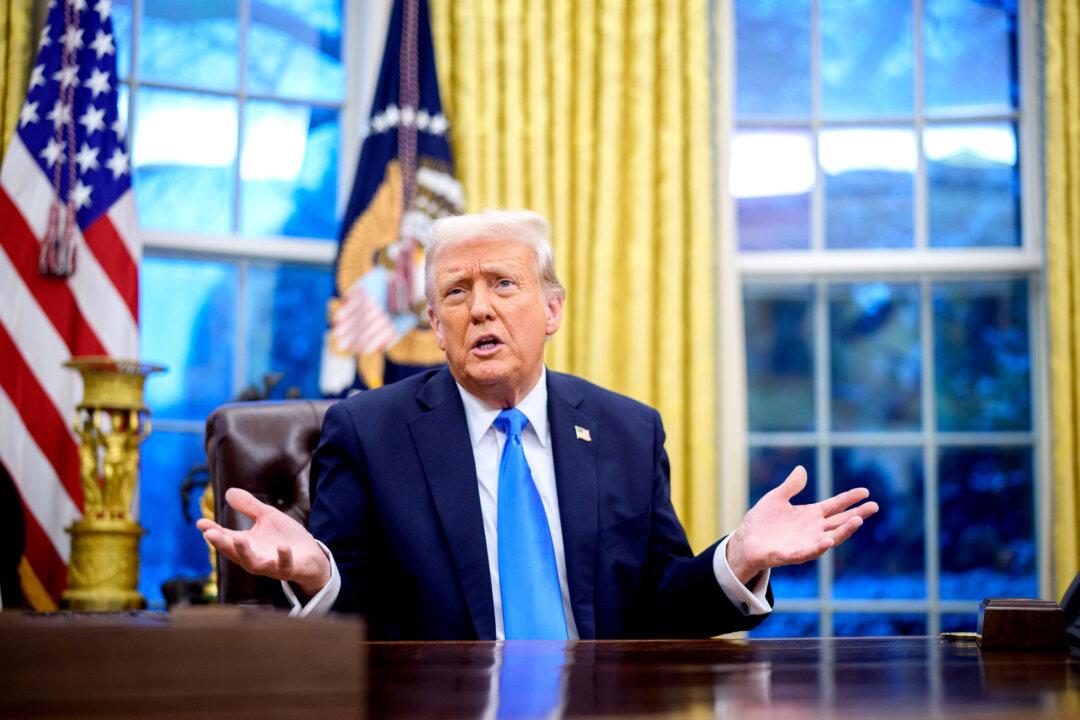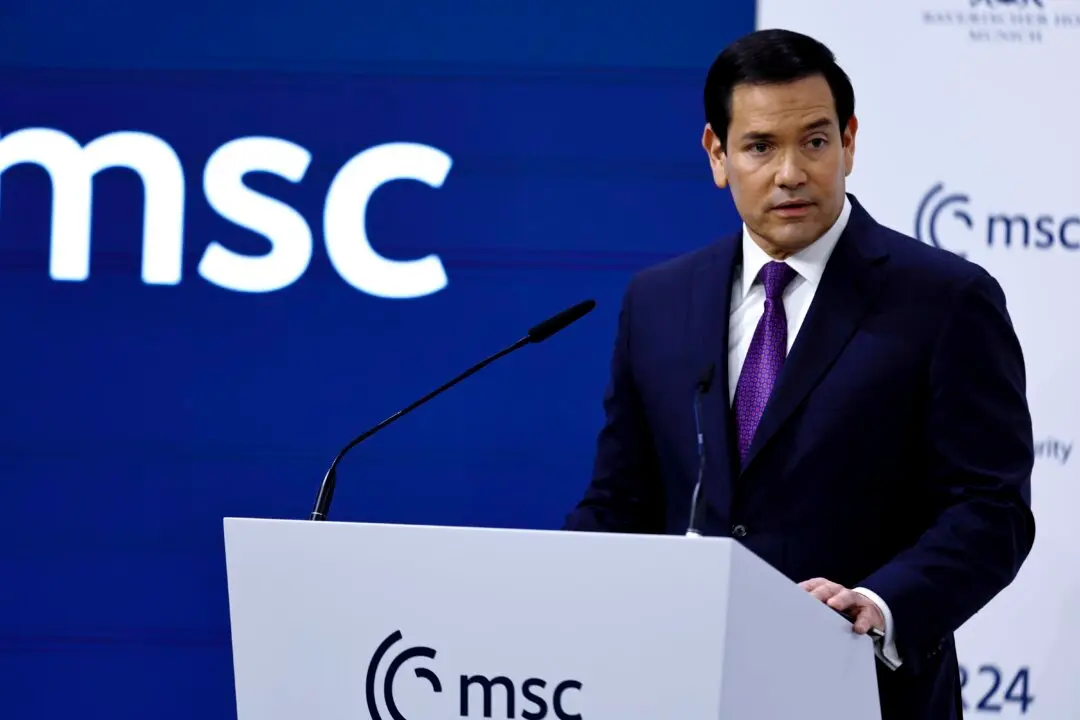President Donald Trump signed an executive order on Feb. 11 directing all agency heads to work with the Department of Government Efficiency (DOGE) to cut staff and limit hiring in the federal government.
The president signed the order in the Oval Office alongside DOGE head Elon Musk on Tuesday. Trump discussed weeding out government corruption and let Musk speak about DOGE’s goals.





